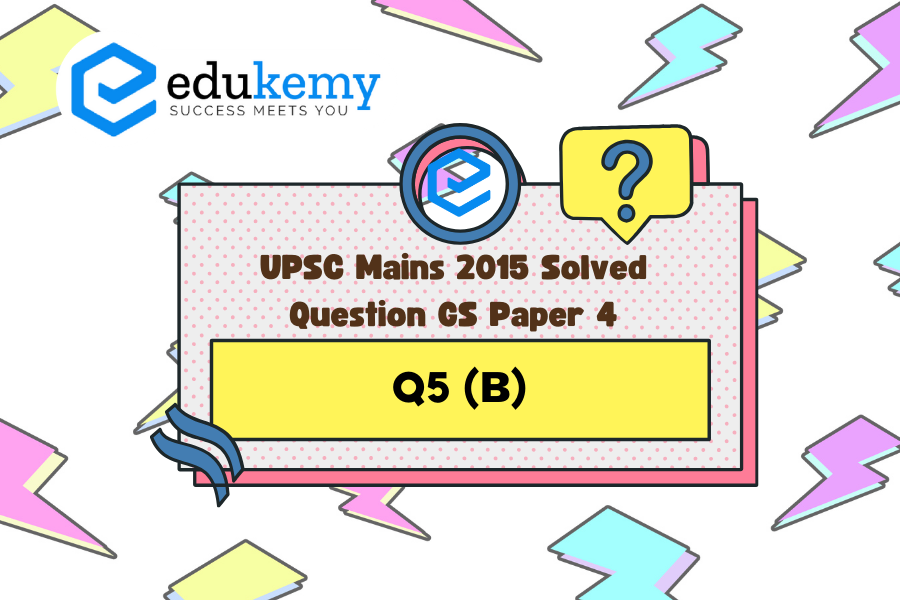The Union Public Service Commission (UPSC) is the apex recruiting body in India responsible for selecting candidates for various prestigious civil services positions. In 2015, the General Studies Paper 4, also known as the Ethics, Integrity, and Aptitude paper, presented candidates with a challenging array of questions aimed at evaluating their ethical and moral reasoning, decision-making abilities, and overall aptitude. This paper, a critical component of the UPSC examination, tests not only the knowledge but also the character and judgment of aspiring civil servants. Let’s delve into the solved questions of the UPSC 2015 GS 4 paper to gain insight into the rigorous standards expected of future administrators and leaders in India.
Contents
Q6 (b) Is it possible to balance the two to create a better administration for the faster development of our country?
ANSWER
Yes, it is possible to balance these two to create a better administration.The democratic attitude and bureaucratic attitude unfolds the argument that in a democracy citizens are at the central point of governance- it exists to safeguard the rights and liberties of the citizens however governance operates through bureaucracy which is an institution built on the premise that efficient and effective bureaucracy mandatorily needs some operation autonomy which creates a differential power structure and in turn erodes citizens’ freedom up to a certain extent within a society.
Some measures given below can be followed to achieve this target:
- Delegating the areas of usage: Democratic attitude of Bureaucrat is required in certain areas of governance while in other areas, bureaucratic attitude is needed. These should be demarcated. For Example: Areas having larger public interactions(like field postings) requires democratic attitude whereas areas that require quicker decision making needs bureaucratic attitude as in day to day functioning of administration at higher levels.
- Guidelines with Flexibility Provisions: The guidelines and standard operating procedure should be issued at the macro level, well there should be some provisions of flexibility at the microlevel, so that the balance between these two attitudes can be ensured for good governance .
Further, transparency in administration is the key to good governance while the secrecy argument believes that excessive transparency makes the system so much prone to scrutiny that effectiveness and working itself becomes difficult and in some cases even impossible. Hence balance has to be made between democratic and bureaucratic attitude. This can be done by placing democratic principles above the bureaucratic principles. Democracy as a value needs to be practiced at all levels and in all spheres of life.
In case you still have your doubts, contact us on 9811333901.
For UPSC Prelims Resources, Click here
For Daily Updates and Study Material:
Join our Telegram Channel – Edukemy for IAS
- 1. Learn through Videos – here
- 2. Be Exam Ready by Practicing Daily MCQs – here
- 3. Daily Newsletter – Get all your Current Affairs Covered – here
- 4. Mains Answer Writing Practice – here


